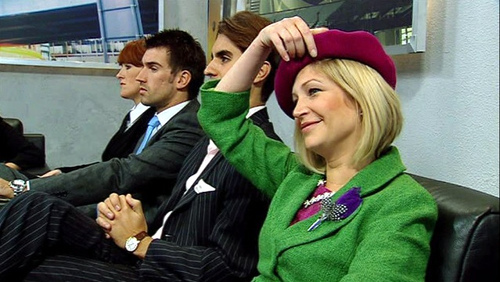The Apprentice returned last week and once again 12 budding entrepreneurs return to our screens with the usual blend of unfounded self-belief, buffoonery and recrimination.
Originally the hapless contestants were competing for a role at one of Alan Sugar’s companies, but since 2011 the prize has been a £250,000 investment from the man himself and the chance to work as his business partner.
This move was nominally an attempt to reflect the shifting mood in the UK towards going it alone and setting up a business (although in truth had more to do with the fact the winners didn’t stick around for very long).
So this shift in focus has been brilliant for shining a light on the entrepreneurial spirit of the UK and demonstrating that people can go and achieve their dreams of successfully winning investment for their ideas, yes? Well no, not exactly. In fact we feel it does much more harm than good for entrepreneurship in this country. And here’s why we think that is…
Reality isn’t all that real
With reality shows such as the X-Factor we all appreciate that, although future careers are at stake, by far the biggest element of the show is to entertain the public.
>See also: People forget ‘pain’ of entrepreneurship, says former Dragon
This is of course also true of The Apprentice, but somehow as the subject is business that fact can sometimes be forgotten.
Let’s not forget that this show has no more gravitas than any other talent competition and the plight of the contestants is just as manipulated to make everyone look ridiculous and chaos to reign (not that they appear to need much help).
You don’t need an ego the size of Canary Wharf
One of the most problematic misconceptions The Apprentice peddles is that you have to be some sort of narcissistic maniac to succeed in business.
The vast majority of successful entrepreneurs you meet are very reflective, calm and rational people. Yes taking the leap certainly requires confidence in your own abilities and your ideas, but in no way does that translate to shouting down everyone in the room at the earliest opportunity.
Lack of flexibility
As mentioned, when the show started the “prize” was a job working for Alan Sugar in one of his many businesses. But now it involves going into business with him and continuing to run your own business.
Under the old system the list of ridiculous tasks, running around and selling any old tat the boss tells you to, sort of made sense. As a senior sales professional working for a larger company you might be asked to put your mind, unquestionably, to selling something you know very little about and care about even less.
But now that the format has changed and the end-game involves people retaining and running a large stake in their own business, surely the tasks should be adapted more effectively to reflect this?
This doesn’t appear to have been done for the main reason that people running around like headless chickens and embarrassing themselves is what the public wants.
It’s not at all clear how performing succeeding or failing a these tasks helps to assess a candidate’s ability to run a business of their choosing.
The business is secondary
In The Apprentice you could have the best idea for a business in the world but if you can’t create a meal for a market stall in East London you’ll never get a chance to have it read. How does that in any way reflect reality?
Similarly if you jump through all the hoops you’re presented with in the show the investor (Sugar) has no choice but to hand you £250,000. This doesn’t appear to be a helpful lesson for young entrepreneurs.
It’s not clear what you win
Winners of The Apprentice give away half of their business for £250,000. That’s a lot to give away to an investor who has not told you what they are going to do with that 50% and how they are going to help you to grow.
It basically appears that you get the publicity of Sugar occasionally tweeting about your product and a bit of mentoring. Perhaps a whole lot more goes on behind the scenes, but not knowing that before you sell half of your business is a terrible way to conduct a deal.
Heaven forbid a young entrepreneur with a billion pound idea sees this and just thinks that’s what he needs to do to get his business off the ground. An unscrupulous investor could take them to the cleaners.
Further reading: The link between entrepreneurship and happiness






